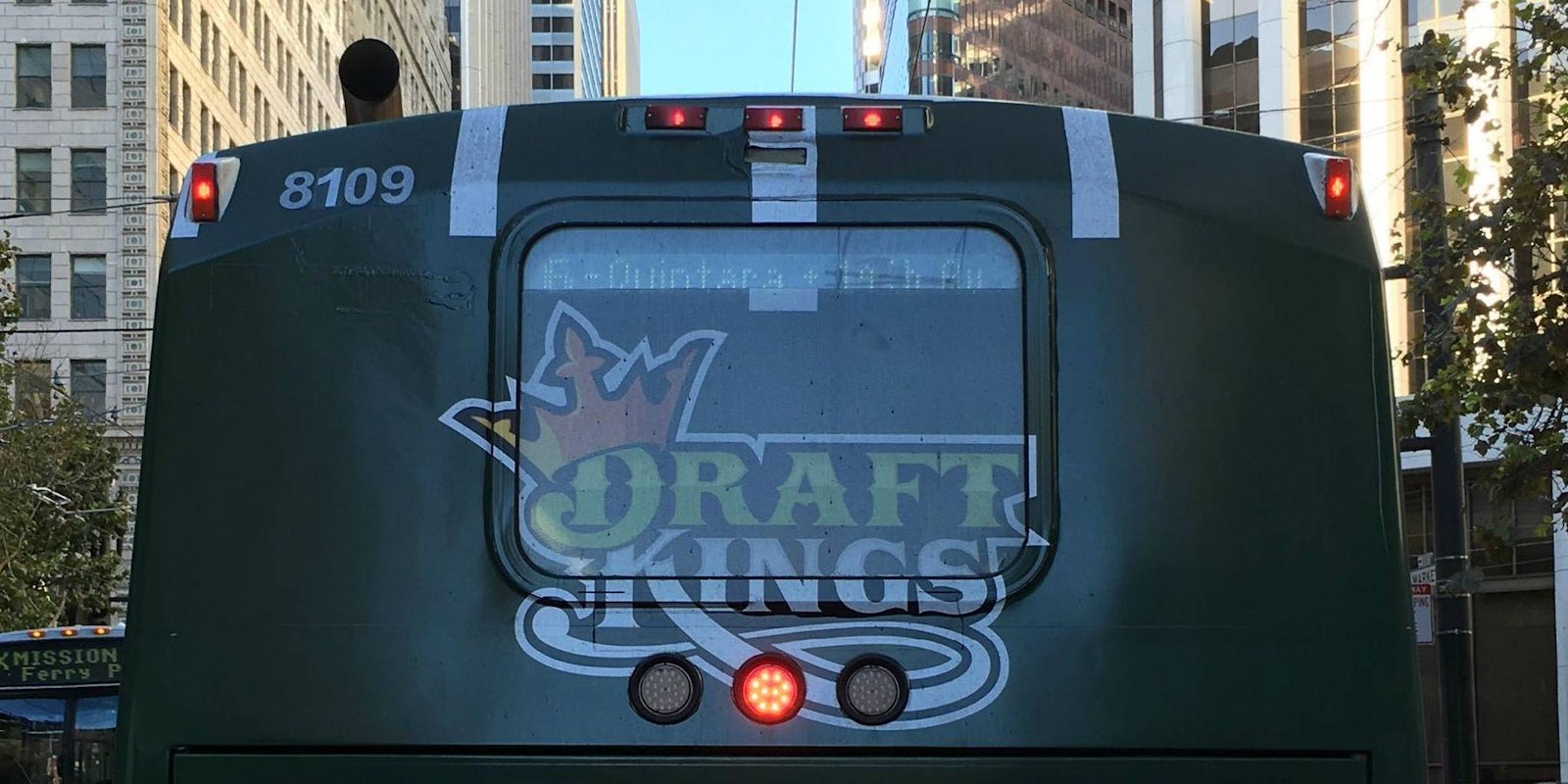Less than a month after the Federal Trade Commission filed suit to stop a merger between FanDuel and DraftKings, the two major daily fantasy sports sites are going their separate ways.
In a statement released Thursday afternoon, FanDuel CEO Nigel Eccles said it was in the best interest for everyone involved to cancel the merger idea.
FanDuel & DraftKings not merging after FTC scrutiny. How they thought they could even attempt it is baffling. pic.twitter.com/UZfsBC8jPI
— Darren Rovell (@darrenrovell) July 13, 2017
The two DFS sites announced a merger last November “to create a stronger entity that can focus on growing the fantasy sports market by developing new products and features, delivering enhanced user experiences, and creating an overall stronger fantasy sports community.” After a splashy 2015 in which FanDuel and DraftKings raised billions of dollars while blitzing the internet and podcast spaces with millions of dollars of advertising, the industry has struggled with various lawsuits, federal investigations, and about a dozen states that forbid the sites from operating within their boundaries.
It was thought at one point that a merger could save the industry, but the FTC had a major problem with the two companies combining since that would have given one entity control of more than 90 percent of the DFS market.
“This merger would deprive customers of the substantial benefits of direct competition between DraftKings and FanDuel,” Tad Lipsky, the acting director of the FTC’s Bureau of Competition, said in a statement when the FTC filed suit.
Even after the merger announcement, DraftKings continued to raise vast amounts of money, pocketing $100 million that was seen as a hedge bet in case the merger didn’t go through.
Perhaps as a result, DraftKings CEO Jason Robins told Bloomberg that the company is in a strong position. Robins said DraftKings’ revenue has grown nearly 40 percent year over year, and he said the company could become profitable right now. Instead, Robins said it’ll continue to spend money to grow the company.
“When we started talking to FanDuel it felt life-threatening,” Robins told Bloomberg. “Now it feels like a cost of doing business.”
According to an Axios report last month, DraftKings had a $92 million operating loss in 2016, while FanDuel lost tens of millions of dollars through the first 10 months of that year.
Eccles told Recode earlier this week that FanDuel is also on the right path, saying, “We certainly feel that next year will be a break-even year for us.”
But Boom Fantasy CEO Stephen Murphy isn’t quite as optimistic about his two behemoth DFS rivals.
“They have lost and are still losing quite a bit of money,” Murphy told the Daily Dot last month. “They need to figure out a business model that works. They need to find a product that gets some positive cash flow, because they’re stretched a little bit… I think it will be interesting to see if one of them goes out of business or if one of them gets acquired by someone else for pennies on the dollar.”


